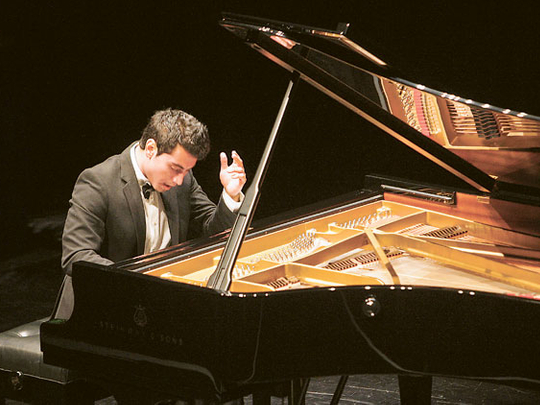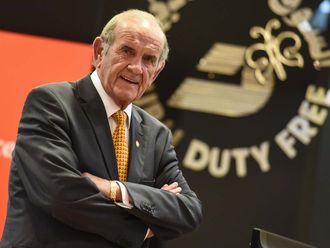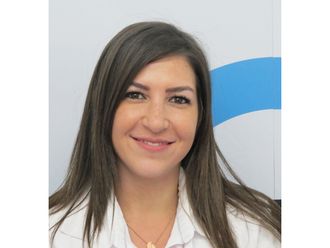
He could have become a doctor or a footballer, but 21-year-old Arsha Kaviani's "coincidental" love affair with the piano has shaped the Dubai-born classical pianist and composer's destiny.
At 15, Kaviani beat 79 competitors from Bahrain, Egypt, Kuwait and the UAE to win the Young Musician of the Gulf title in 2006. The year earlier, the Iranian prodigee — in his first appearance at the same contest — won the awards for Best Piano and the Most Promising Under-15 Musician. More success followed the gold medals from the Gulf — Kaviani won a scholarship to the prestigious Chetham's School of Music in Manchester the same year.
Since then, Kaviani has firmly established his reputation as one of the most talented classical virtuosos in the region, working with a variety of renowned symphony orchestras and chamber ensembles around the world and performing alongside and under the supervision of authorities in the music world such as Stephen Hough, Lang Lang, Vladimir Jurowski, Peter Donohoe and Kristjan Jarvi.
Closer home, Kaviani has won critical acclaim for his performances at the Al Ain Classics festival and for a solo concert last month in Dubai, which showcased an eclectic mix of his interpretations of some of the classical masters' works, along with sonatas composed by himself.
Shaped by coincidence
Kaviani, who began playing the piano when he was 6, says it all started by sheer coincidence. "My parents had signed up my brother, who's four years older than me, for the piano. When he would come home and practise, I would go very quiet. Eventually my parents figured out that that was because I was enjoying the music very much. So they signed me up for piano lessons as well," Kaviani says in an interview with Weekend Review during his recent visit to Dubai.
What began as a love for listening to Mozart and Beethoven at bedtime soon evolved into a fascination for the staples of classical repertoire — such as Brahms, Schumann and Chopin — and lesser-known maestros such as Godowsky, Medtner, Feinberg and Busoni, and experimenting with his own compositions and even improvisations on themes given by the audience.
Kaviani's performance at the Royal Northern College of Music in Manchester (where he now studies as a third-year bursary student), in which he played Busoni's Fantasia Contrappuntistica from memory, was hailed by Busoni expert Carlo Grante as "revelatory".
Growing up in Dubai a couple of decades back as a classical musician had its unique advantages, Kaviani says. "You had very little that kept you from doing what you dreamt of on the piano ... There was nobody telling you that you can't do certain things musically, nobody was telling you that ‘you have to play it this way' and that ‘this is the correct way', because there wasn't really any way for it to be correct."
But there were also challenges, he says. "It was difficult to get hold of the music I was trying to listen to. I had to order certain scores and recordings from the United States. Everything available was very general and basic. The more I decided that my career choice was to become a concert pianist, the more specialised and specific my tastes became. The shops would have the more popular classical hits, but they wouldn't have, for instance, Prokofiev's piano concertos," Kaviani says.
"Now the scenario has changed a lot, but more could be done to cultivate talent within the region. I think the first step is for the UAE to have its own professional orchestra and a purpose-built concert hall for classical music and opera. Acoustically, a lot of classical music is still difficult to programme here, because most venues are theatres meant for dramatic groups, or for performances of Shakespeare, or for contemporary musicians."
The biggest influence on Kaviani as a musician and composer has been Frederick Chopin, "the poet of the pianists". "What he did for the development of the piano and for the technique of the piano is unsurpassed," he says. "It changed the way music written for the keyboard is perceived."
Kaviani's own concerts have also been noted for their unique programming and choice of music. His performance in Dubai last month — part of the Dubai Concert Committee's series of free concerts throughout the year — saw him playing a selection of Brahms's rhapsodies, Liszt's Sonata in B Minor and his own transcription of the scherzo from Brahms's Piano Concerto No 2. "Often, the music I like is very complex, one that says a lot. For instance, in the Liszt sonata, every single note has a purpose, every passage of music has a structural function. Nothing is wasted to make the music flashy or for show. I tend to like such pieces over the more crowd-pleasing compositions that would bring the house down," Kaviani says.
Surprising taste
The young maestro is also critical of the so-called divide between classical and non-classical music. "Music is music ... There's only good music and bad music," he says. Perhaps embodying this spirit, the music on his iPod is quite surprising. "I have on my iPod right now a Lang Lang and Kanye [West] collaboration, apart from Jeff Buckley's recently released electronic versions. Plus some songs of James Blake and the London-based upcoming singer-songwriter Charlene Soraia, who is just wonderful," Kaviani says. "And Amy Winehouse ... she's always on my iPod."
"Both Lang Lang and I are big fans of Jay-Z, something not many people would expect from a classical musician. I also love jazz ... There is a lot of music I love hearing, besides works of dead composers. These is music I feel very close to and music I feel very moved by," he says.
So what is the price of the critical acclaim bestowed upon him at such a young age, we ask. "You must be absolutely enamoured and deeply in love with what you do, because it's a very difficult job," says Kaviani, his fingers playfully tapping the keys of the elegant Steinway in front of him. "It's a crazy career, where you have to make many sacrifices. So many times my friends call me, saying ‘Arsha, let's go to this party', and I have to tell them, ‘Look, I have this concert coming up. I can't, I have to stay at home.' Or I'll have to tell my friends here that I need to leave you all and go to a specialised music boarding school because I love the piano."
"I love doing all the things that any 21-year-old would. And if it wasn't for music, I would probably have become a doctor or a footballer ... may be more a footballer than a doctor," Kaviani says. "But for music, you have to make incredible sacrifices."











